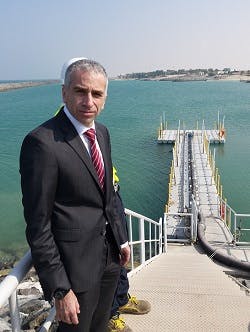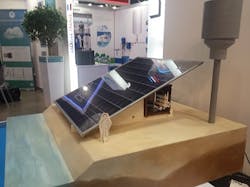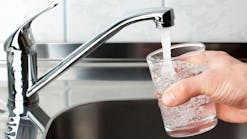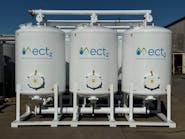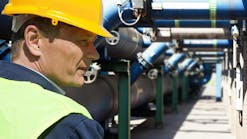Solar desalination project confirmed as fifth Masdar trial, Abu Dhabi
French engineering company Mascara will deliver a fifth energy efficient desalination plant as part of the ongoing Masdar trials in Abu Dhabi, UAE, WWi magazine has learned.
The project will include a 30 m3/day, small scale solar powered desalinationplant that will use eight reverse osmosis (RO) elements provided by Dow.
Speaking to WWi magazine at the Abu Dhabi Sustainability Week, Marc Vergnet, president of Mascara said he is expecting the project to consume 2.8 kWh/m3, which his significantly smaller than the aim of 3.6 kWh/m3 from Masdar for the other four desalination projects.
Now in operation, the previous four projects are being operated by Spanish firm Abengoa, French companies SIDEM (Veolia) and Suez and US firm, Trevi Systems (read WWi article).
The Mascara project will be the first in Ghantoot to connect solar power to the desalination process and is expected to be up and running by May.
| Finding future desal: Dr Ritschel from Masdar with the intake for the previous four desalination plants behind |
Speaking onsite at Ghantoot, Dr Alexander Ritschel, senior manager at Masdar, said: “Desalination plants in the UAE are mainly thermal and aged. There needs to be a transition to membrane-based desalination technology, which is more efficient than thermal processes installed sometimes up to 40 years ago.”
Ritschel said the five trial plants will run until 2017, with the aim to find out “how the desalination plant of the future will operate”.
Commenting on the new solar development, he said it’s designed to operate off-grid for remote locations, such as islands.
| Support: As shown in the model, the solar panel will be supported by the container including the RO membranes, generating 30 m3/day |
Treated water from the Mascara trial will be disposed to the sea at this stage, Vergnet confirmed, until they have enough data to develop the plant on a larger scale.
He also said that, interestingly, Mascara is hoping to “avoid pre-treatment” ahead of the RO membranes and the project will be intaking the water from a borehole, which will act as a “natural filter” for the seawater.
###
Read more
